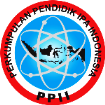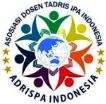Kemampuan Literasi Sains Siswa Sekolah Dasar di Sekolah Adiwiyata (Studi Deksriptif di SD Adiwiyata X Kota Padang)
Abstract
The aims of this study is to describe the ability of scientific literacy of students in Adiwiyata’s school on three aspects, they are content, context, and attitude. The importance of having scientific literacy is one of the competencies must be possessed in 21st century education. Adiwiyata School is one of the concrete steps of the government to instill the principles and competences of scientific literacy. The research method used is descriptive quantitative. The research sample was taken using simple random sampling technique. The data collection was carried out by distributing questions and questionnaires to students in Adiwiyata School. Then, the data was analyzed using descriptive statistics by referring to categorization norms. The results showed that the scientific literacy ability of elementary school students in Adiwiyata School was in the high category. Furthermore, the ability of scientific literacy aspects of attitudes in Adiwiyata school students is in the high category namely X> 53.6. While the ability of scientific literacy in the aspect of content included in the category is quite low. The acquisition of scientific literacy skills in students at Adiwiyata school is believed to be influenced by the characteristics of the school in internalizing the values of science in teaching and learning activities in the classroom.
Keywords: adiwiyata, scientific literacy, content, and context
ABSTRAK.
Tujuan penelitian ini adalah untuk mendeskripsikan kemampuan literasi sains siswa di sekolah Adiwiyata pada tiga aspek, yakni konten, konteks, dan sikap. Pentingnya memiliki Literasi sains menjadi salah satu kompetensi yang harus dimiliki dalam pendidikan abad 21. Sekolah Adiwiyata menjadi salah satu langkah konkrit pemerintah untuk menanamkan prinsip dan kompetensi literasi sains. Metode penelitian yang digunakan adalah kuantitatif deskriptif. Pengambilan sampel penelitian dilakukan dengan teknik simple random sampling Pengumpulan data dilakukan dengan cara menyebarkan soal dan kuesioner kepada siswa di Sekolah Adiwiyata. Kemudian, data di analisis dengan menggunakan Statistik Deskriptif dengan merujuk pada norma kategorisasi. Hasil penelitian menunjukkan bahwa kemampuan literasi sains siswa sekolah dasar di Sekolah Adiwiyata berada pada kategori tinggi. Selanjutnya, kemampuan literasi sains aspek sikap pada siswa sekolah Adiwiyata berada pada kategori tinggi yakni X > 53,6. Sedangkan kemampuan literasi sains pada aspek konten termasuk dalam kategori cukup rendah. Pemerolehan kemampuan literasi sains pada siswa di sekolah Adiwiyata diyakini dipengaruhi oleh ke-khas-an sekolah dalam menginternalisasi nilai-nilai sains dalam aktivitas belajar mengajar di kelas.
Kata kunci: adiwiyata, literasi sains, konten, konteks, sikapFull Text:
PDFReferences
Aberšek, M. K., Dolenc, K., Flogie, A., & Koritnik, A. (2015). New Natural Science Literacies Of Online Research And Comprehension: To teach or not to teach. Journal of Baltic Science Education, 14(4), 460–473.
Afni, N., & Rokhimawan, M. A. (2018). Literasi Sains Peserta Didik Kelas V di MIN Tanuraksan Kebumen. Al-Bidayah: Jurnal Pendidikan Dasar Islam, 10(1), 47–68.
Azwar, S. (2017). Metode Penelitian Psikologi. Pustaka Belajar.
Bond, D. (1989). In pursuit of chemical literacy: A Place For Chemical Reactions. Journal of Chemical Education, 66(2), 157–160.
Dani, D. (2009). Scientific Literacy And Purposes For Teaching Science: A Case Study Of Lebanese Private School Teachers. International Journal of Environmental and Science Education, 4(3), 289–299.
DeBoer, G. E. (2000). Scientific literacy: Another look at its historical and contemporary meanings and its relationship to science education reform. Journal of Research in Science Teaching, 37(6), 582–601.
Eisenhart, M., Finkel, E., & Marion, S. F. (1996). Creating the conditions for scientific literacy: A re-examination. American Educational Research Journal, 33(2), 261–295.
Foster, J., & Shiel-Rolle, N. (2011). Building scientific literacy through summer science camps: a strategy for design, implementation and assessment. Science Education International, 22(2), 85–98.
Frydenberg, M., & Andone, D. (2011). Learning for 21 st Century Skills. International Conference on Information Society, i-Society 2011, 314–318.
Gayford, C. G., & Saveland, R. N. (1978). Handbook of Environmental Education. In British Journal of Educational Studies (Vol. 26, Nomor 1).
Holbrook, J., & Rannikmae, M. (2009). The meaning of scientific literacy. International Journal of Environmental and Science Education, 4(3), 275–288.
Jgunkola, B. J., & Ogunkola, B. J. (2013). Scientific Literacy: Conceptual Overview, Importance and Strategies for Improvement. Journal of Educationai and Sociai Research, 3(1), 265–274.
Liu, X. (2009). Beyond science literacy: Science and the public. International Journal of Environmental and Science Education, 4(3), 301–311.
Norris, S. P., & Phillips, L. M. (2003). How Literacy in Its Fundamental Sense Is Central to Scientific Literacy. Science Education, 87(2), 224–240.
Pratiwi, S. N., Cari, C., & Aminah, N. S. (2019). Pembelajaran IPA Abad 21 dengan Literasi Sains Siswa. Jurnal Materi dan Pembelajaran Fisika (JMPF), 9(1), 34–42.
Susilastri, S. D., & Rustaman, N. Y. (2015). Students’environmental Literacy Profile in School-Based Nature and in School that Implement the Adiwiyata Program. 263–266.
Windyariani, S. (2018). Kemampuan Literasi Sains Siswa SD Pada Konteks Melestarikan Capung. Biosfer: Jurnal Pendidikan Biologi, 10(1), 17–21.
Yuenyong, C., & Narjaikaew, P. (2009). Scientific literacy and thailand science education. International Journal of Environmental and Science Education, 4(3), 335–349.
Yuliati, Y. (2017). Literasi Sains Dalam Pembelajaran IPA. Jurnal Cakrawala Pendas, 3(2), 21–28
DOI: http://dx.doi.org/10.24014/jnsi.v3i2.9987
Refbacks
- There are currently no refbacks.

Journal of Natural Science and Integration
E-ISSN: 2620-5092 P-ISSN: 2620-4967
Published By:
Department of Science Education, Faculty of Education and Teacher Training,
State Islamic University of Sultan Syarif Kasim Riau, Indonesia
Mailing Address:
Jl. H.R Soebrantas Km. 15 No. 155
Kelurahan Simpang Baru
Kecamatan Tuah Madani, Pekanbaru, Riau, Indonesia
Email: jnsi.tadrisipa@uin-suska.ac.id
Indexed By:
Journal of Natural Science and Integration is licensed under a Creative Commons Attribution 4.0 International License.


_-_Copyy2.png)






.jpg)
.png)
.jpg)
.jpg)




